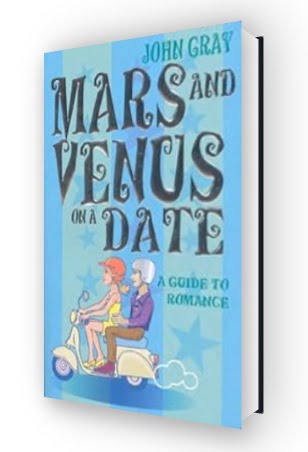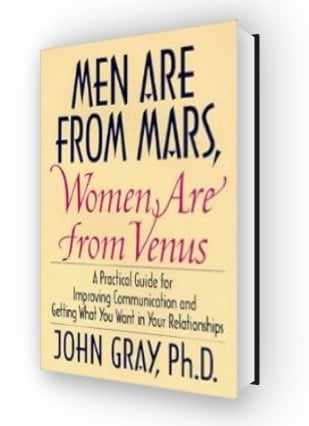A scientific perspective on why women fall in love more often than men
While evolutionary biology and hormonal influences offer insights into why typical gender behaviours in love and sex might differ, What is the scientific perspective on why women fall in love more often than men?

The age-old stereotypes that women fall in love and men just want to have sex are often oversimplified and can be damaging, but they do hold some grounding in evolutionary biology and psychology.
Ashley Madison attracted an embarrassing number of men and women who wanted to start dating while married. While over 68 millions registered online for affair dating, we are not going to pint the finger, but try to untangle the complex web surrounding gender stereotypes in love and sex.
The clichés that paint women as love-seekers and men as sex-driven are nuanced by a fascinating blend of evolutionary biology, neurochemistry and societal expectations. What is the science behind these stereotypes and how they shaped each one of us from a nature and nurture perspective?
Reflecting on the times when a man was going hunting for months, leaving behind his cave and women ( apparently, about five for each man), genders set the stage for differing behavioral patterns from an evolutionary perspective.
Women’s biological construct — limited eggs, pregnancy and typically, a considerable role in nurturing the young —justify female preferences towards partners who provide stability, resources and protection. These qualities suggest not just any partner, but one committed for the long haul.
Men, contrarily, produce copious amounts of sperm throughout their lives, enabling them to father numerous offspring with minimal direct biological investment in each. This biological reality fosters a propensity among men to maximize reproductive success by pursuing multiple partners, thus explaining the evolutionary underpinnings of a higher male penchant for casual encounters.
Hormones, love, sex
The dance of hormones within our bodies also plays a role in modulating our experiences of love and sexual desire. Oxytocin, the so-called “love hormone,” spikes during intimate acts like kissing or cuddling and childbirth, promoting bonding; women generally experience higher levels, enhancing their focus on emotional bonds.
On the flip side, men’s higher testosterone levels correlate with a stronger drive for sex. Vasopressin, another critical hormone, while influencing bonding in both sexes, has been observed to have particularly notable effects in men in terms of promoting protective and committed behaviors.
The impact of society and Psychology
The society we grow up in and the psychological attachments we form don’t just influence, but actively shape our expressions of love and desire. Girls and boys are often socialized differently and are socially conditioned to have different expectations. Girls might be encouraged to value emotional connections and long-term commitments, while boys would mirror their father’s preference for short term relationships.
From an evolutionary standpoint, the reproductive strategies of men and women have historically differed due to the inherent biological investments each sex makes in reproduction. Women have a limited number of eggs, experience pregnancy, and often take on the primary role in child-rearing. Consequently, they tend to seek partners who can provide stability, resources and protection, traits associated with long-term commitment and love.
Men, on the other hand, produce millions of sperm over their lifetimes and can theoretically father many offspring with minimal biological investment in each. This difference has led to a strategy where men are more inclined towards seeking multiple short-term mating opportunities to maximize their reproductive success. This strategy manifests in a higher interest in casual sex compared to women.
Attachment theory brings a new question: How securely or insecurely attachment affects a relationship dynamics? For example, those with avoidant attachment styles might steer clear of close bonds, whereas those with anxious attachments may seek deeper, more constant validation from partners.
Are men from a different planet?
What’s crystal clear from modern research is that these behaviors are not black and white. Men are more than capable of deep emotional investment, and women certainly can and do engage in and enjoy casual sexual relationships. Economic independence and evolving societal norms have also begun to blur these gender lines, showing that much of what we attribute to “natural differences” is societally constructed.
While evolutionary biology and hormonal influences offer insights into why typical gender behaviours in love and sex might differ, they’re far from the whole story. Our behaviours in romantic and sexual spheres are gloriously complex, influenced by a tapestry of individual experiences, societal norms, and personal choices. Breaking down these stereotypes requires an open acknowledgment of this complexity and variability, encouraging a richer understanding of human sexuality and emotional connection.
Books by John Gray
John Gray, Ph.D., is the top-selling relationship author in history. He has written more than 20 books, including the New York Times #1 best-selling relationship book of all time, “Men Are from Mars, Women Are from Venus.” His works have sold over 50 million copies and have been translated into 50 languages worldwide.
His books are the perfect tool to offer a scientific perspective on why women fall in love more often than men.
Do you want to share your story and inspire our readers ? Know that YOUR EXPERTISE is paving the way for a brighter, happier future.







